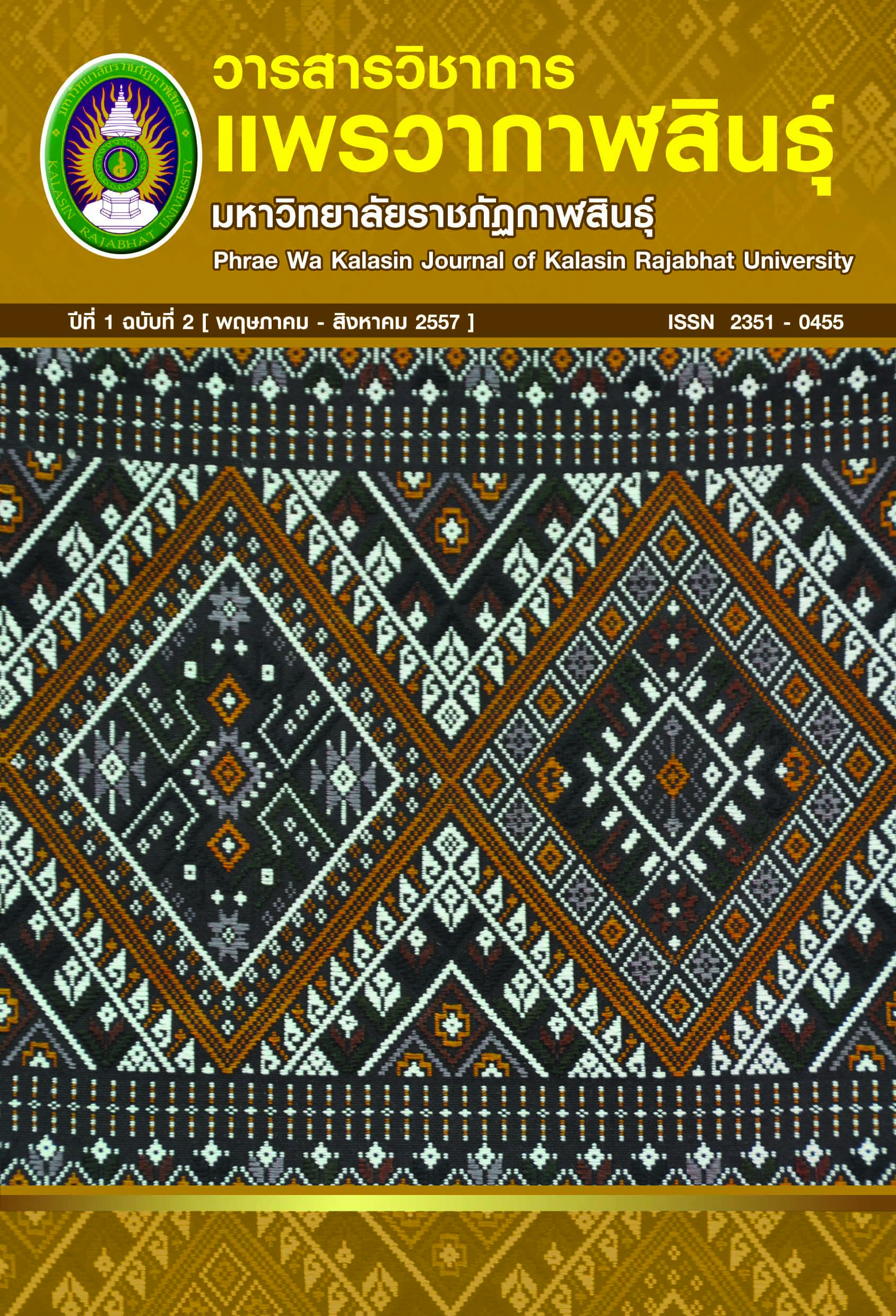การพัฒนาเกมคอมพิวเตอร์ส่งเสริมการอ่าน สำหรับเด็กที่มีความบกพร่องทางการเรียนรู้
Main Article Content
บทคัดย่อ
ผลการศึกษาค้นคว้าพบว่า เกมคอมพิวเตอร์ส่งเสริมการอ่านที่สร้างขึ้น มีประสิทธิภาพ เท่ากับ 84.58/83.07 ซึ่งสูงกว่าเกณฑ์ที่ตั้งไว้ เด็กที่เล่นเกมคอมพิวเตอร์ส่งเสริม การอ่านแล้วมีค่าดัชนีประสิทธิผลเท่ากับ 0.5719 ซึ่งหมายความว่าผู้เรียนมีความรู้ หรือความก้าวหน้าทางการเรียนเพิ่มขึ้น 0.5719 หรือคิดเป็นร้อยละ 57.19 และ มีความพึงพอใจในการเล่นอยู่ในระดับพึงพอใจมากที่สุด
Children with learning disabilities often demonstrate slow personal development and learning impairments. Their ability to learn is frequently slower than those of normal children, and some appear to lack motivation, resulting in a grade level below the standard. With these facts in mind the researcher decided to design and develop a computer game that would promote the reading skills of children with learning disabilities. The primary objectives of the design and trial phases were 1) explore suitable features of the proposed computer game that would enhance the children’s reading skills; 2) examine the effective index of the children’s learning achievement by making use of the computer game; and 3) study the children’s level of satisfaction following their use of the game. The sample group consisted of 27 children with learning disabilities who attended their Prathomsuksa 5 at Muang Roi-Et School. The participants were selected using the purposive sampling method, and the research instruments were 1) the computer game promoting the participant’s reading skills on “cluster”; 2) the participant’s learning achievement test; and 3) the participant’s satisfaction assessment form. The outcome of the study was better than expected. The outcome indicated that the effectiveness of the computer game to promote the children’s reading skill developed by the researcher was 84.58/83.07. Meanwhile, the participants who played the game demonstrated an effective index of 0.5719 indicating that their learning and progress increased 0.5719, calculated as 57.19%. In addition, participants expressed a high degree of satisfaction after they had tried out the computer game.

